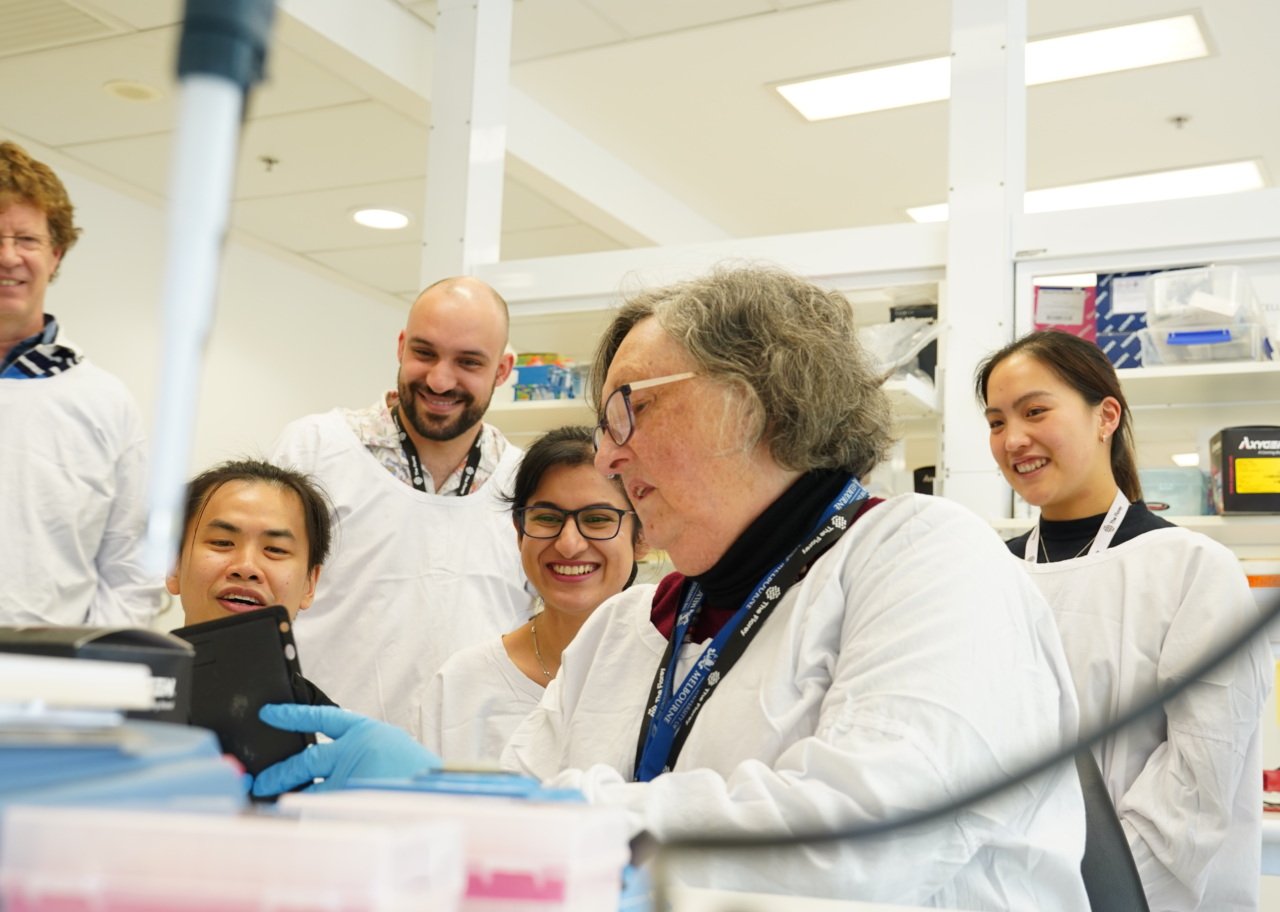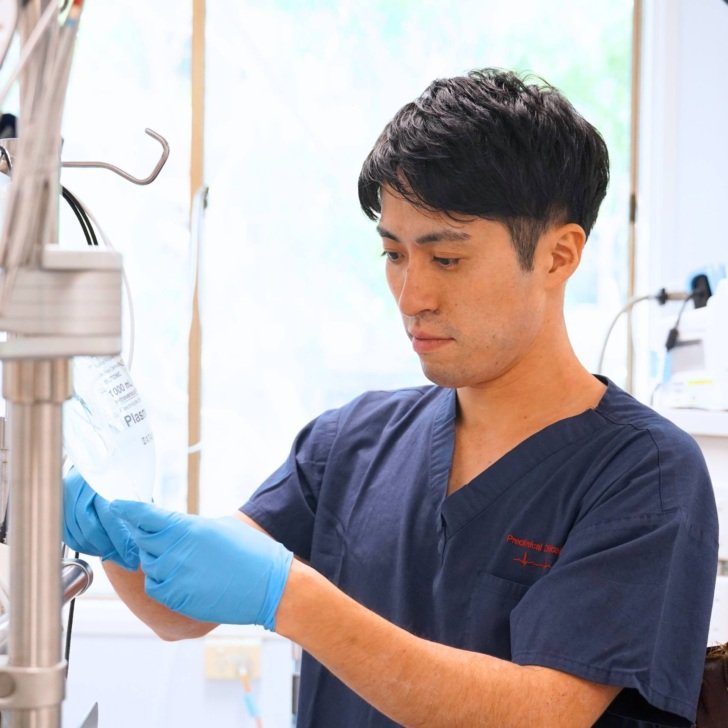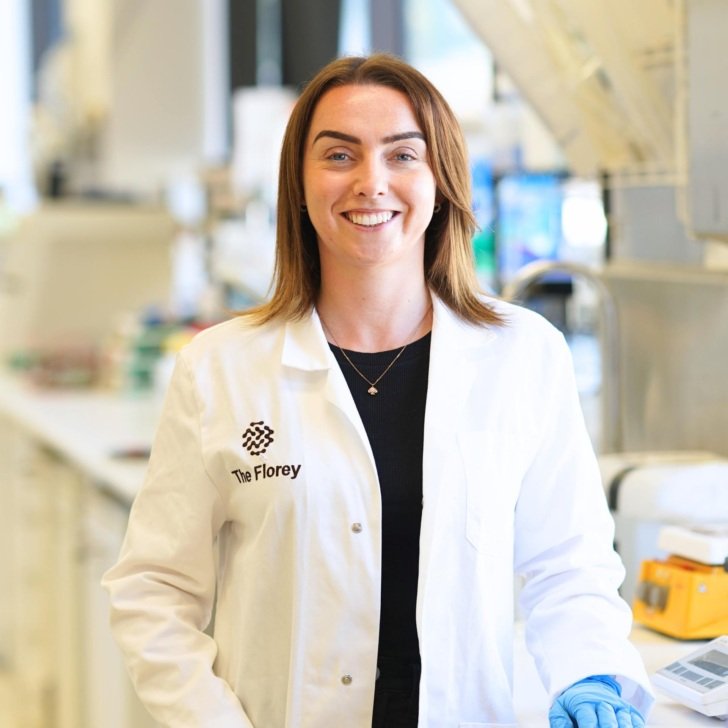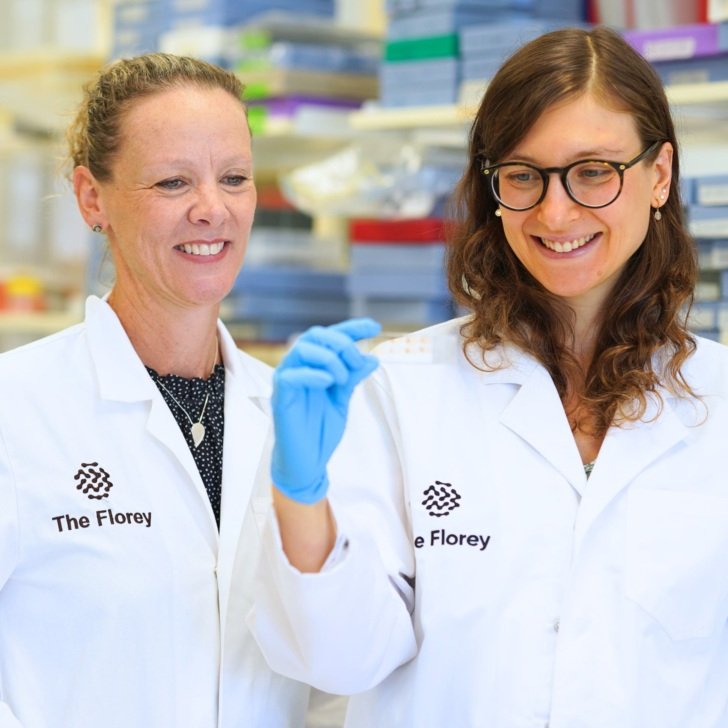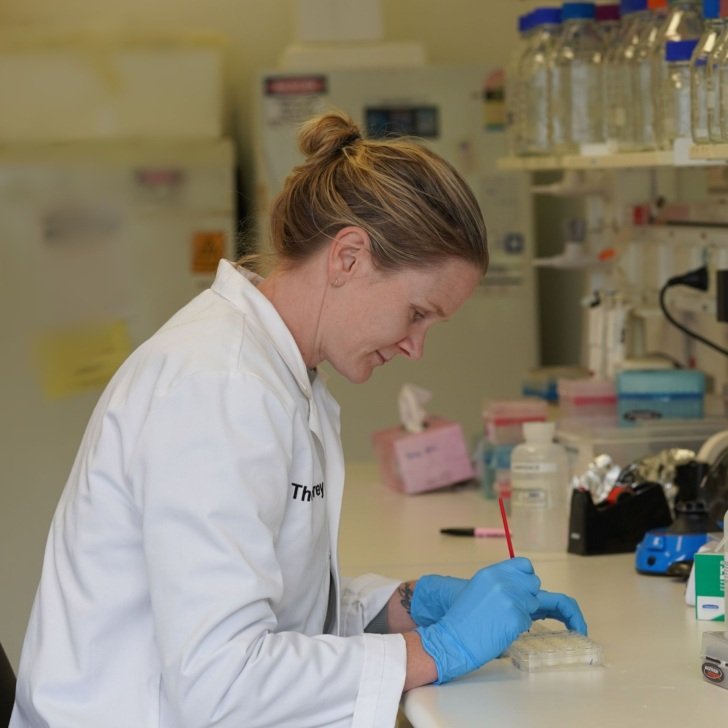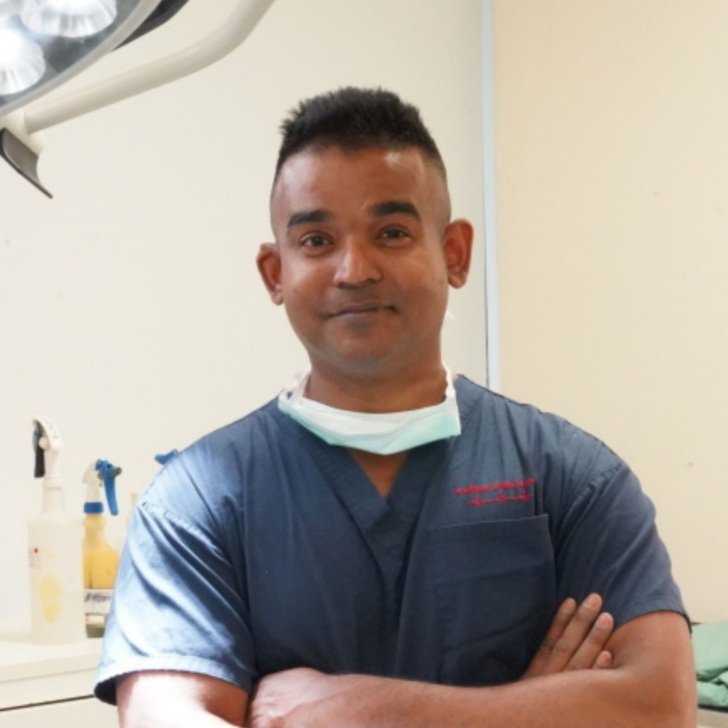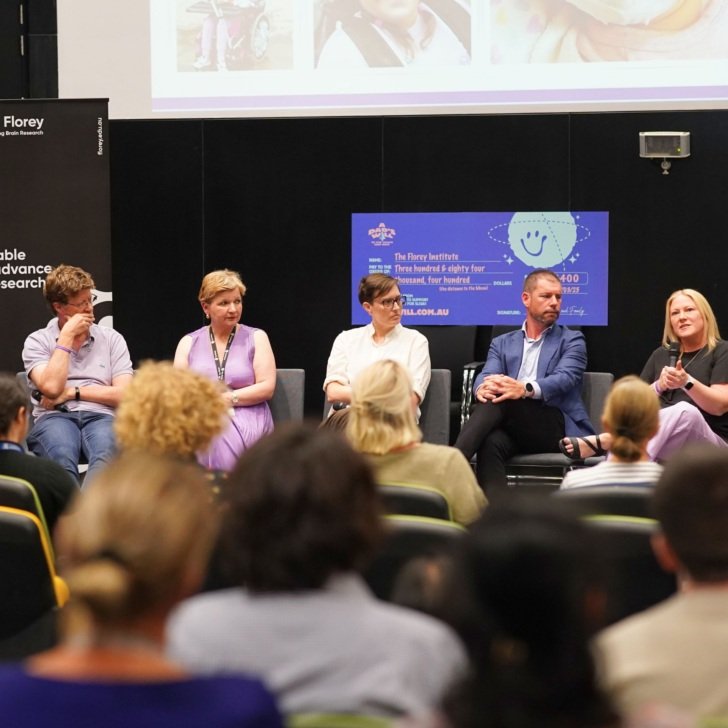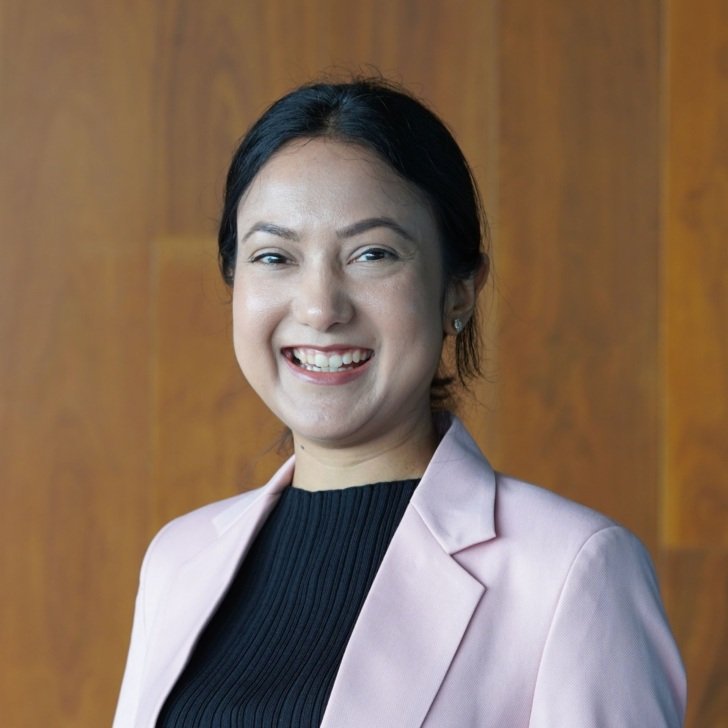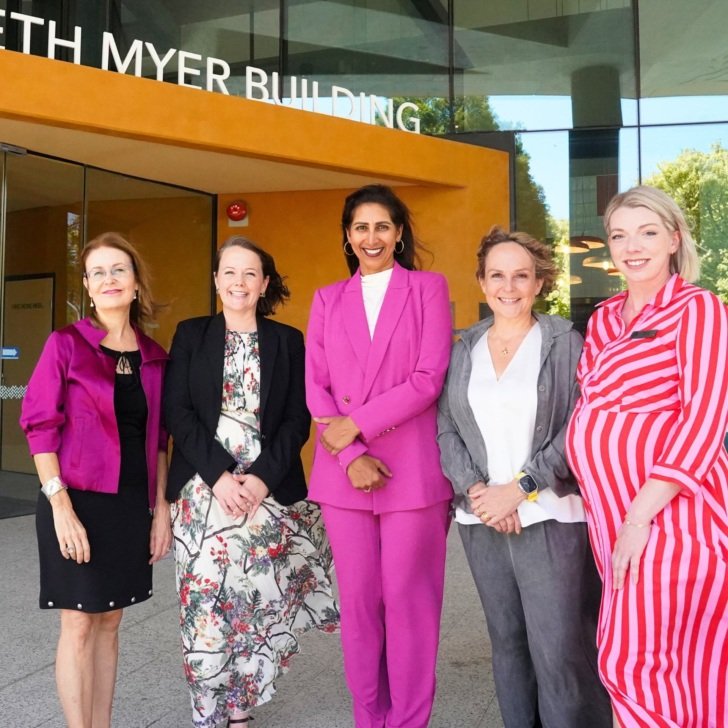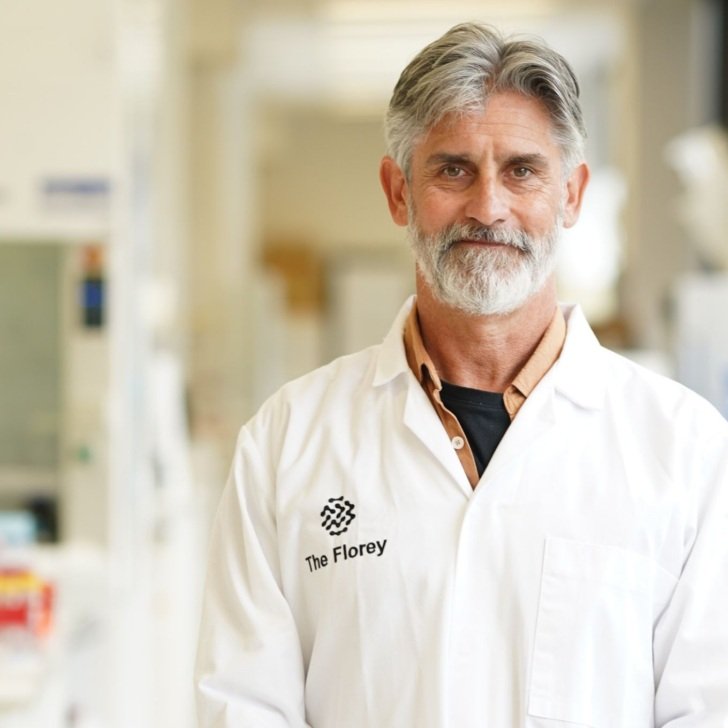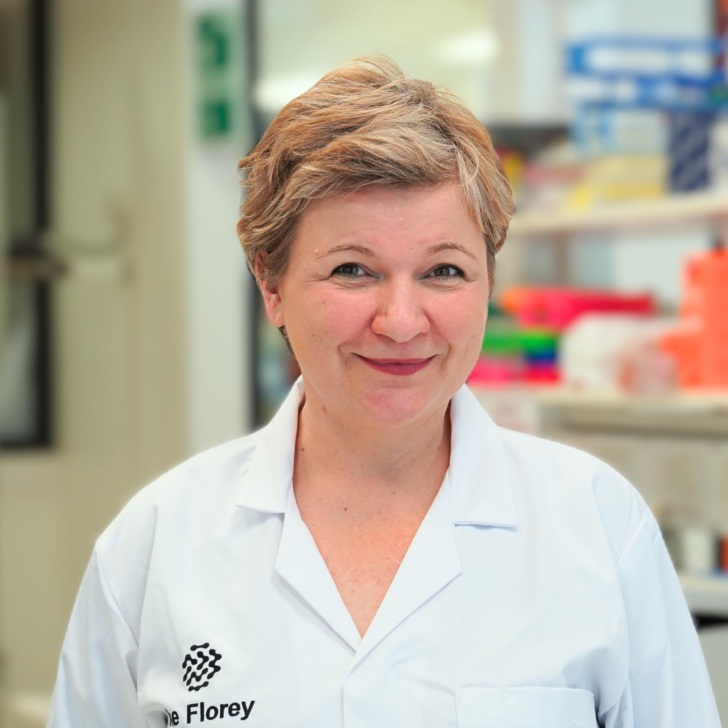“When I first met Marie I was very much a newbie,” says Florey PhD student Chaseley McKenzie.
“I was in awe of having the privilege to learn from and work with someone who not only is extremely experienced in the field, but whose passion and enthusiasm for science is unwavering.”
Chaseley says that now, after knowing Dr Marie Phillips, 82, for just shy of five years, she is still just as inspired by her as the day she met her.
“Now we know each other a lot better and share lots of smiles and laughs in the lab.”
Dr Marie Phillips is a senior research officer in the Ion Channels and Diseases Group at The Florey.
While many of us decide to hang our lab coats up at 67, Dr Phillips says the beauty of the world keeps her going.
I have always found the world around me wonderful. I have even driven home at rush hour and found myself looking at the buildings, roads, cars and thinking ‘an animal did this.
“The human brain keeps me going too. The human brain with its billions of connections and the struggle to understand its complexities. We are putting one more small piece of information in the giant puzzle.”
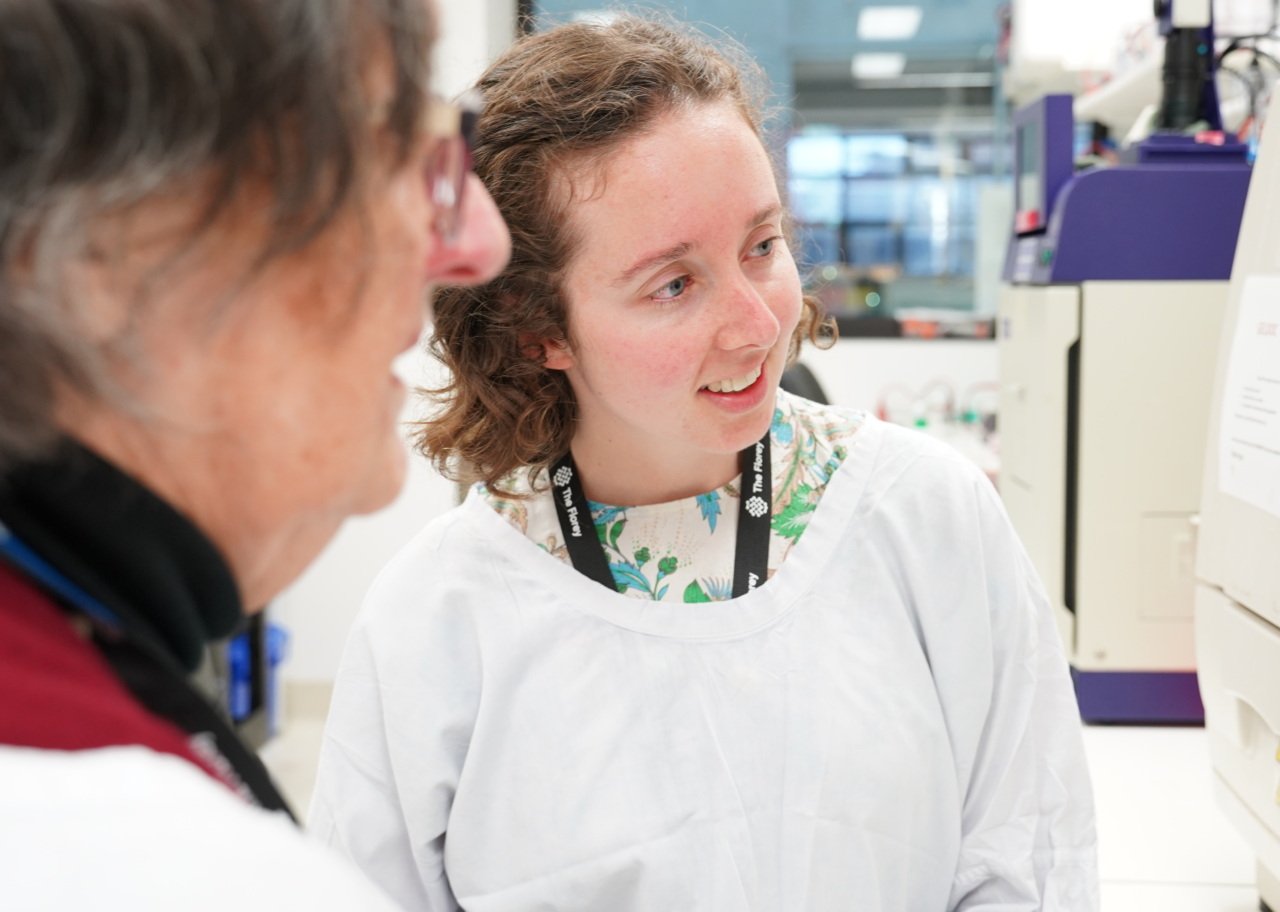
Following time in the UK and Canada, Dr Marie Phillips returned to Australia with a Commonwealth Scholarship to do a PhD.
Forty-three years later Dr Phillips is still involved with and fascinated by neurological diseases involving genetic mutations. In 2008 she joined the Florey at 66 years of age, working with Professors Steven Petrou and Chris Reid.
“This group working on epilepsy had many fascinating ion channels to work on, a close association to clinical and pharmaceutical groups, good equipment and a great working environment,” Dr Phillips said.
In the last few years, key members of the team Dr Phillips works in has made important advances in sudden unexpected death in epilepsy (SUDEP). One such advance is the discovery that genetic changes that compromise regular heart rhythm increase the risk of SUDEP.
Graduate students are also working on transcription factors and on somatic changes to brain integrity causing epilepsy.
“The more we know, the more we find is out there waiting to be discovered,” Dr Phillips said.
“However not by me. It is time for me to leave and find another adventure. Thanks to the Florey and especially Professor Reid for letting me work here for so long.”
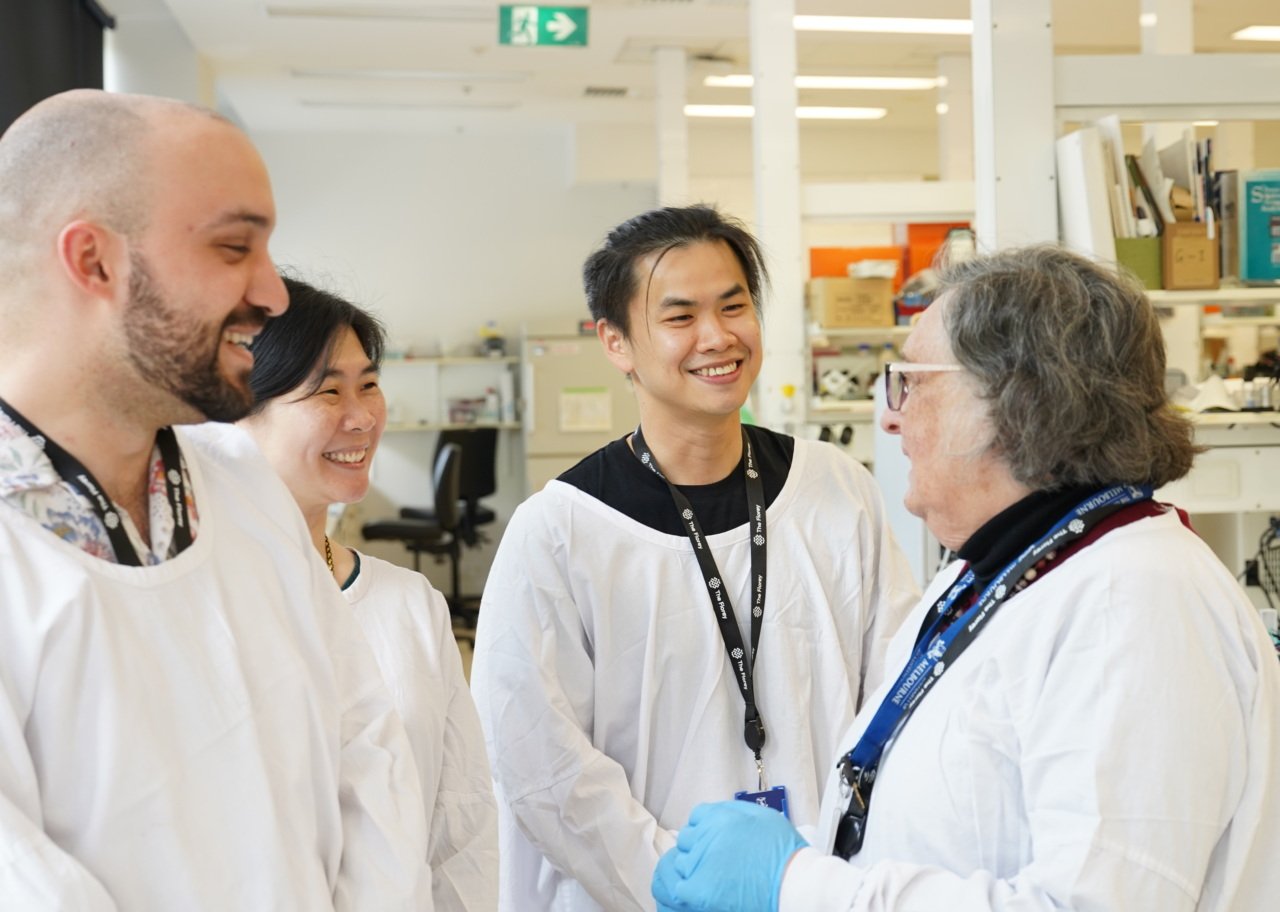
Dr Ian Forster, 73, who completed his PhD in 1979, has worked in labs around the world, and has now worked at The Florey since 2016.
Dr Forster’s experience spans over 40 years one milestone including the Melbourne Bionic Ear project – the first in Australia. The product turned into a successful commercial device. Receiving FDA approval very early on.
After a brief stint at the Institute of Neurology, London, he moved to the University of Zurich to focus on membrane biophysics and electrophysiology of voltage-gated ion channels , ligand-gated receptor channels and structure-function of membrane transport proteins, with Professor H Murer (University of Zurich) and Prof Ernest Wright (UCLA).
He was a member of the Swiss Space Biology team that first performed electrophysiology on living egg cells under microgravity.
“Working with intergenerational teams keeps my brain alert and there are stories in science that the young upcoming stars should hear from those who had first-hand experience,” Dr Forster said.
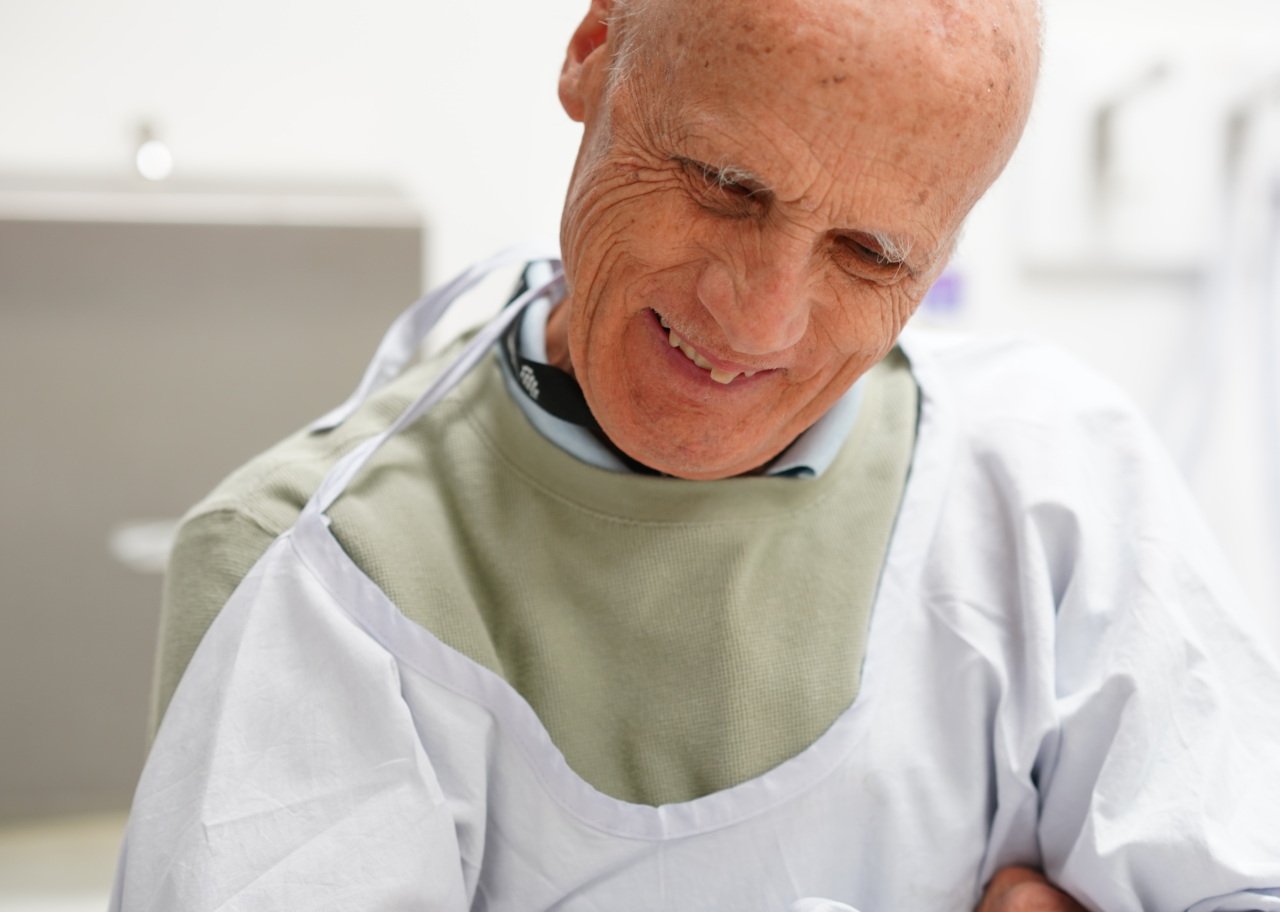
PhD student James Petrou, who works closely with Drs Phillips and Forster in the lab, says he strongly recommends that younger and older scientists engage with one another.
“Sometimes the current culture in science can be overly focused on just publishing things as fast as possible to the exclusion of anything else, rather than seeing science as being founded on exchanging ideas,” Mr Petrou said.
“Younger scientists engaging with older scientists is beneficial not only on a practical level of getting particular perspectives on your projects and methodology, but also in gaining a greater appreciation for why it is we do what we do.”
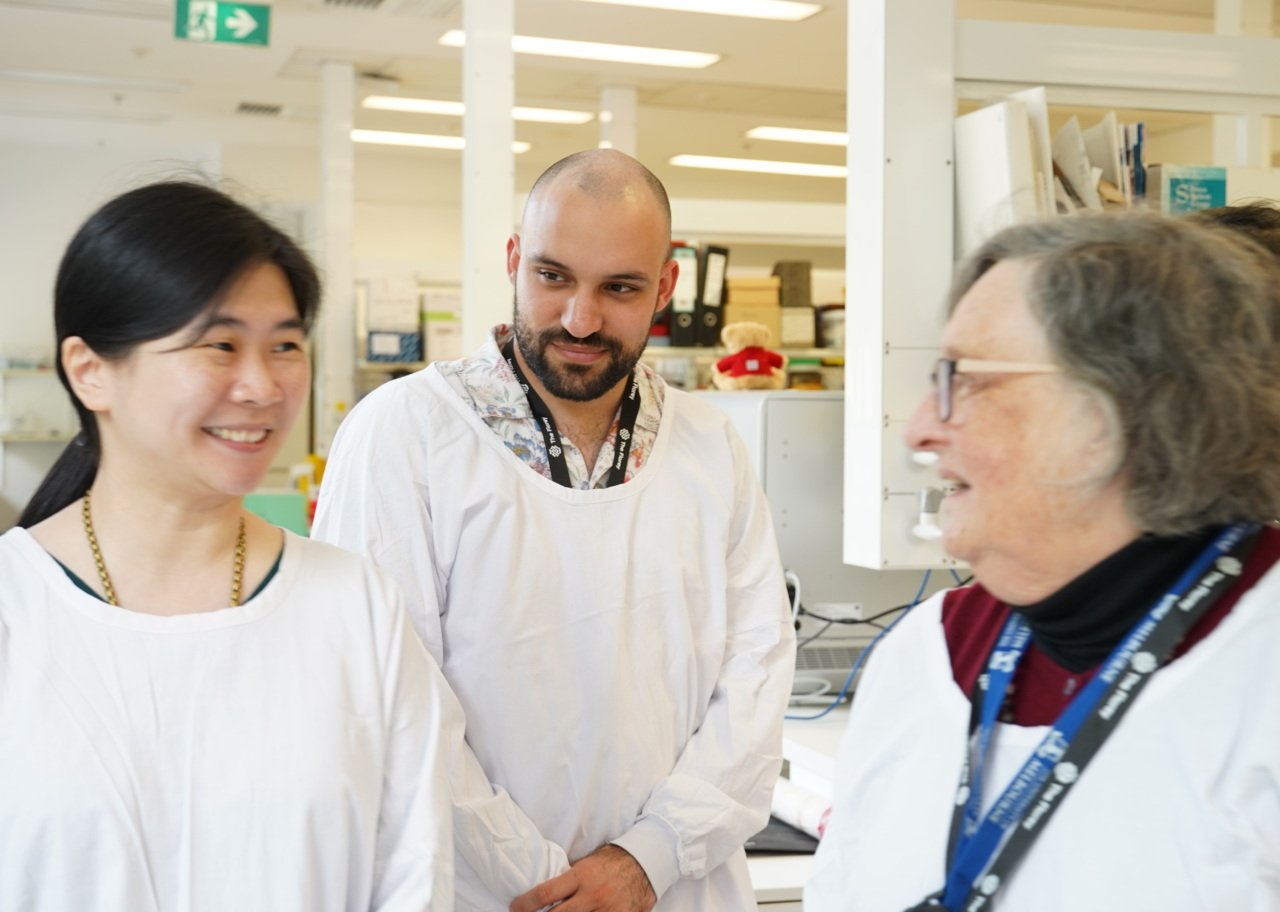
PhD student in Professor Reid’s lab Mun Lee, first met Marie in Professor Reid’s lab.
Marie once said, “If it is easy, it wouldn’t be science.”
“No matter how bright or talented you are as a young scientist, you will still need a good voice next to you to guide and navigate you to a greater height of success. Older scientists are wiser and they can definitely make our lives easier by helping us out in our research.”
In my PhD journey, Marie is the wise and experienced scientist who I am truly grateful to have encountered in The Florey.
Dr Phillips said: “I love working with different generations.”
“[Younger generations] can see things differently and while I have experience to bring, they have skills particularly with information technology and digital analysis that I can’t match.”
“I really like the book The Prophet by Khahil Gibran. Talking about children he says: ‘they live in the house of tomorrow, which you cannot visit, not even in your dreams’.”
